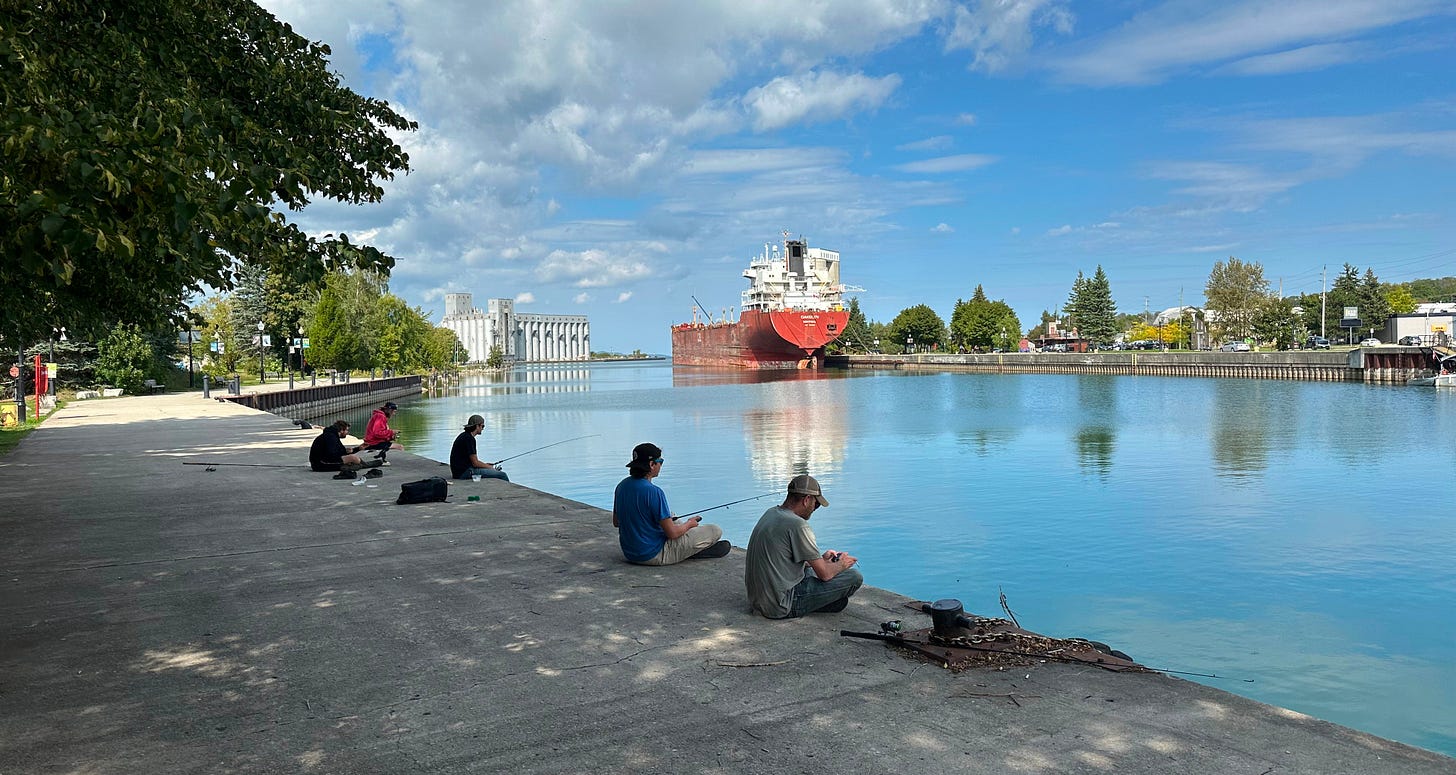Letter: Rethinking the Future of Salmon in Owen Sound
A reader reflects on the decline of Chinook salmon in Lake Huron and questions whether stocking non-native fish remains sustainable.

LETTER TO THE EDITOR
With fall fresh in Owen Sound, a familiar sight returns: the salmon. For decades, their run has marked the end of summer. The Salmon Spectacular has become tradition, but it comes and goes while the fish continue their journey upstream.
Crowds gather to watch, many unaware that these are stocked, non-native fish. They are part of what is essentially a put-and-take fishery rooted in outdated management paradigms.
For many, the run is a seasonal signpost: fish charging upriver with single-minded determination. The sight is still compelling — but the questions it raises are even harder to ignore, especially given the lake’s changes over time.
You don’t need to be a fisheries expert to notice the decline. There are fewer boats on the water, fewer tied up at the marinas, fewer trucks and trailers at the launches. And for anyone who has watched the salmon run over the years, it’s hard not to notice the dwindling numbers of fish in local rivers and streams.
Chinook salmon, or king salmon, are not native to Lake Huron. For decades, though, the gamble of stocking them seemed to pay off. Owen Sound embraced these fish. The Salmon Spectacular, local derbies, and invite-only tournaments drew people together, boosted tourism, and anchored community traditions.
Boats once crowded the bay, and rivers ran thick with salmon. As a kid, it felt like you could cross the bay stepping from boat to boat, or walk the rivers on the backs of the mighty Chinook.
But the ecological foundation beneath that fishery has shifted. Alewife populations — the main food source for Chinook — collapsed in Lake Huron. Studies now conclude the Chinook fishery is unlikely to ever recover because the system no longer supports it.
The future, many argue, lies with native species: lake trout, whitefish, cisco, walleye, and more — a basis for a resilient fishery.
This is not only a Canadian story. Tagging programs show salmon move freely across the basin: fish stocked in Michigan waters swim into Ontario. What happens state-side directly shapes Owen Sound. That dependency underscores how fragile the Chinook fishery has become.
Years ago, John Post’s Canada’s Recreational Fisheries: The Invisible Collapse warned that many of our fisheries were eroding quietly, their declines hidden by tradition and reluctance to ask hard questions. Watching today’s salmon run, I wonder if we’re living through a version of that invisible collapse here.
I won’t deny my past enjoyment of salmon — the thrill of a king salmon peeling line off my reel, the taste of fresh fish, the evenings at “the tent” with a community united around them. The salmon have given much to Owen Sound. But enjoyment alone does not absolve us of responsibility.
The harder question is whether it remains ethical — or even practical — to continue stocking and celebrating a non-native species in a lake that can no longer sustain it. When we release thousands of hatchery fish knowing they are set up to fail, what exactly are we doing? Is this stewardship, or denial dressed as tradition?
Ethics extend to investment as well. Stocking salmon consumes money, energy, and attention that could instead go toward restoring native fish and habitat. Lake trout, once decimated by overfishing and sea lamprey, are rebounding. Cisco reintroduction projects are underway to restore prey diversity and ecosystem stability. Walleye and whitefish still offer both food and sport, with cultural roots that predate the salmon era by centuries. And species like sturgeon remind us of the lake’s deeper story — one salmon can’t replace.
So why not invest more fully in them? Why not channel the same pride and tourism energy into fish woven into the lake’s fabric, rather than stitched in from outside?
The salmon run remains a fascinating spectacle, but it is also a mirror. It reflects not only the fish in the river but the choices we continue to make. Do we cling to a fishery built on a vanished food web — or shift toward restoring what truly belongs here?
Sincerely,
Sasha Fernando
Letters to the Editor do not necessarily reflect the opinions or beliefs of The Owen Sound Current and its editor or publisher.


